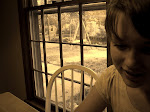
The Ark of the Covenant was the vessel chosen by the Lord to cradle His manifest presence among His people before the promise of the indwelling Holy Spirit was given to them. It was not simply a structure meant to have prophetic implications, but the Lord actually rested on it in the fullest measure possible in this age. In this way, it was a very dangerous vessel, surrounded by mystique because of the strange (at times horrific) activity that seemed to follow it. This activity caused entire cities to have sickness, various maladies, and even wide-spread death. The cause behind this was not a temperamental God who lost His cool when crossed, but rather, it was the picture of trying to plug a 120V conductor into a 1,000,000,000V socket. God, in His extreme holiness, was not restraining Himself in that context, and those who presumptuously came too close were simply swept away because their frames were not made to handle that kind of power.
Correspondingly, the Lord instituted an order of operation called the Law because He ardently desired His creation to be with Him in confidence, even in their frailty. The Law was the Lord’s gift to the Israelites to give them a context of how to safely approach Him. He also did this in the case of the Ark, giving His people a way to have access to the “full” measure of God’s manifest presence. It was extremely important for them to understand the weight of this privilege in order that they would not cross the boundaries set up for their safety and encounter the all consuming Fire without any protection.
Thus, we come to David’s procession from the house of Abinadab up to Jerusalem. David, in a free-spirited joy and excitement, set the Ark on a new cart in order to transport it quickly and allow the whole congregation to worship with dancing, singing, and a general hoopla. However, there were very specific instructions from the Lord on how to go about the transport of the Ark in a safe manner, as He says, “…after that the sons of Kohath shall come to carry them, so that they will not touch the holy objects and die.” (Num. 4:15). Moses also expressly writes, “…four carts and eight oxen he gave to the sons of Merari, according to their service… But he did not give any to the sons of Kohath because theirs was the service of the holy objects, which they carried on the shoulder.” (Num. 7:9). David led his people into treacherous waters, and would soon see the reasons why the Lord had given such straightforward orders.
When the cart came to a rougher terrain, turbulence of the drive soon caused the Ark to jerk and begin tipping over. In frantic reaction, Uzzah did what any God-honoring Levite might do: he reached out to catch the most holy of their sacred objects in order that it would not take a fatal spill. Immediately, the fire of God consumed him. The congregation’s jubilation quickly ceased, and David became angry and afraid toward the Lord (how much more the general population), leaving the Ark in another place.
Why such an outburst from the Lord? In hindsight, it is clear that this was not a random flare of anger, but an incidence that was openly forewarned. The Lord was actually exercising great mercy in their midst, since He only struck down one man and not the entire company. David got the message, though it took three months for him to reconcile the occasion with what he knew about the Lord, His kindness and unwavering mercy. Upon looking back at the Lord’s actions, he realized that it was not His offense that caused Uzzah’s death, but rather his own. When he came to finish the procession to Jerusalem, he made doubly sure that all precautions were taken and the divine order was followed.
Therefore, the death of Uzzah was caused by David’s, the people’s, and his own irreverence. Because they did not take the Lord’s warning seriously, the natural consequences of their actions happened just as He said they would. In a sense, Uzzah was a victim of circumstance, but if any of them had spoken out and called them to correct the boundary, he would not have been in the situation that caused him to die. Though it was His heart’s desire dwell unhindered amidst His people, He also understood their inability to handle such unrestrained power. Yet, by following a strict outline of boundaries, the Lord somehow created the context to be with such broken people. In mercy, the Lord called His people to tremble at His word, letting them know that He never exaggerates or overemphasizes, but speaks with clarity to be heard and obeyed. In Uzzah’s case, the message came loud and clear.
+030s.jpg)

No comments:
Post a Comment